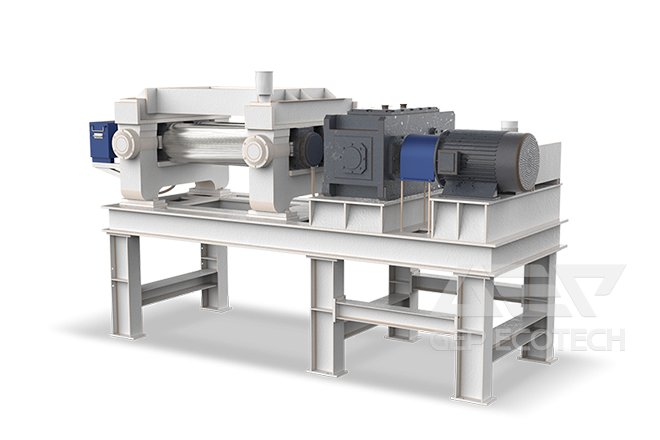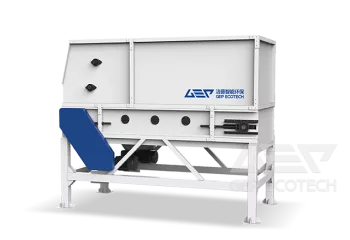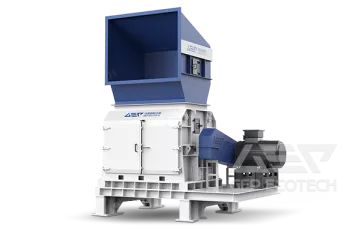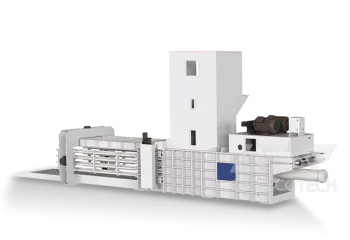Driven by carbon peaking and carbon neutrality goals, China continues to promote the clean transformation of high emission industries. With the "14th Five Year Plan" for the development of circular economy clearly proposing the "coordinated disposal of urban waste by cement kilns and smelting kilns" and the "Special Action Plan for Energy Conservation and Carbon Reduction in the Cement Industry" requiring the proportion of production lines using alternative fuel technology in cement kilns to reach 30% by the end of 2025, the resource utilization of waste materials such as waste spinning has ushered in a policy trend. Especially with the upcoming expansion of the national carbon trading market, high energy consuming industries such as cement are facing the pressure of skyrocketing carbon emission costs. Adopting alternative fuels has become a necessary option for enterprises to reduce costs and increase efficiency.
Waste Spinning As An Alternative Fuel: An "Industrial Food" That Combines Environmental Protection And Economic Value
The calorific value of waste spinning is around 4300 kcal, the volatile matter is around 80-90% (about 27% for coal powder), the ash content is around 1-6% (about 15% for coal powder), and the moisture content is around 4% (about 8% for coal powder). Compared with coal powder, waste spinning has the characteristics of high volatile matter, low ash content, low moisture content, and stable calorific value, making it an ideal substitute for coal. According to calculations, each ton of waste spinning fuel can reduce 1.2-1.5 tons of CO2 emissions, while solving the problems of dioxin and groundwater pollution caused by traditional incineration and landfill. Compared to agricultural and forestry waste, waste spinning fuel has the advantages of stable supply throughout the year and small fluctuations in calorific value, making it a "forgotten industrial food".
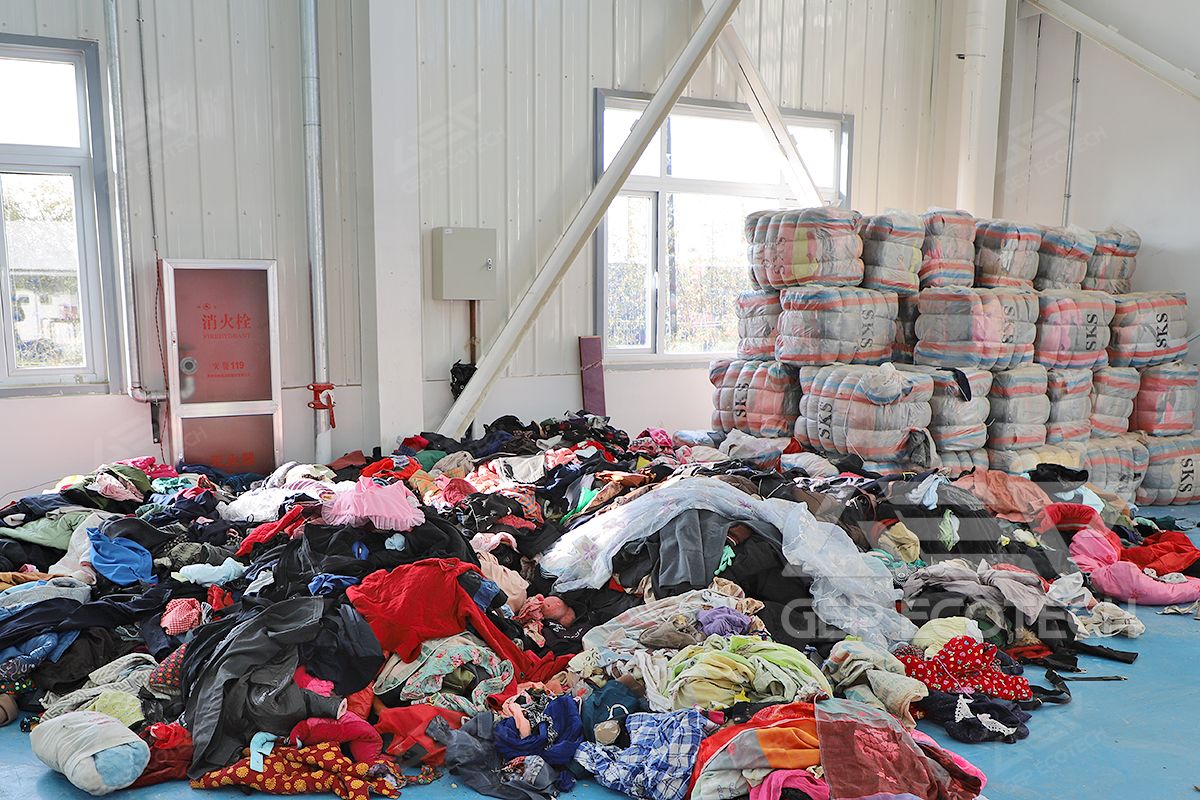
The Demonstration Project In The Yangtze River Delta Has Been Implemented, And GEP ECOTECH'S Intelligent Solution Has Set An Industry Benchmark
Recently, the 100000 ton waste spinning alternative fuel project in the Yangtze River Delta, supported by GEP ECOTECH, has been officially put into operation. This project utilizes innovative process design to convert waste textiles into RDF fuel, which is directly supplied to central enterprise cement kilns to achieve coal substitution.
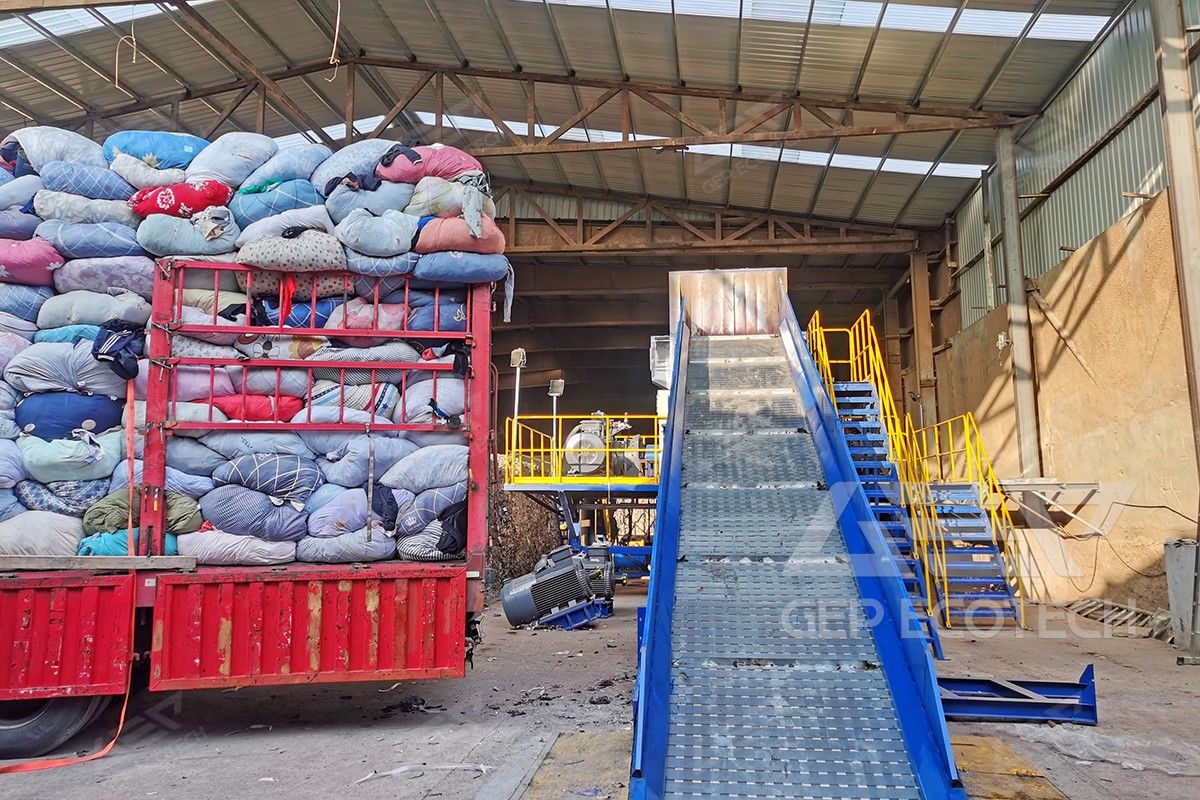
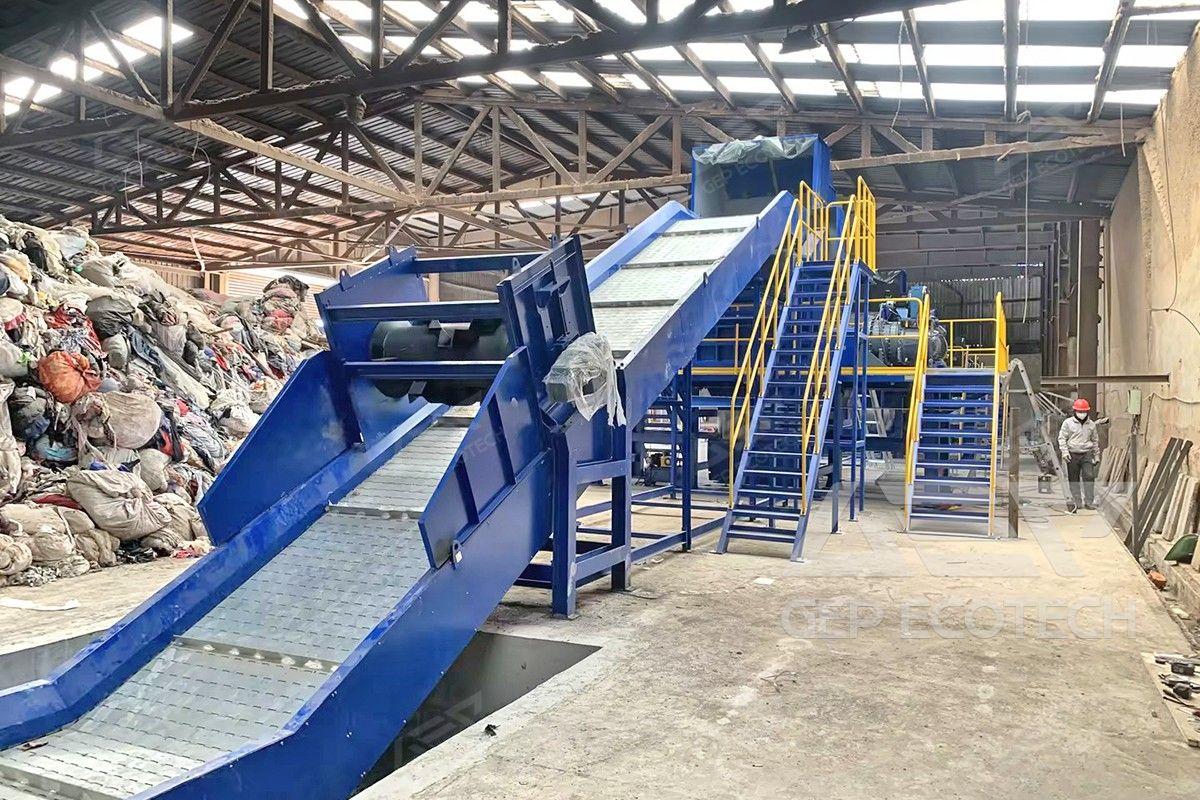
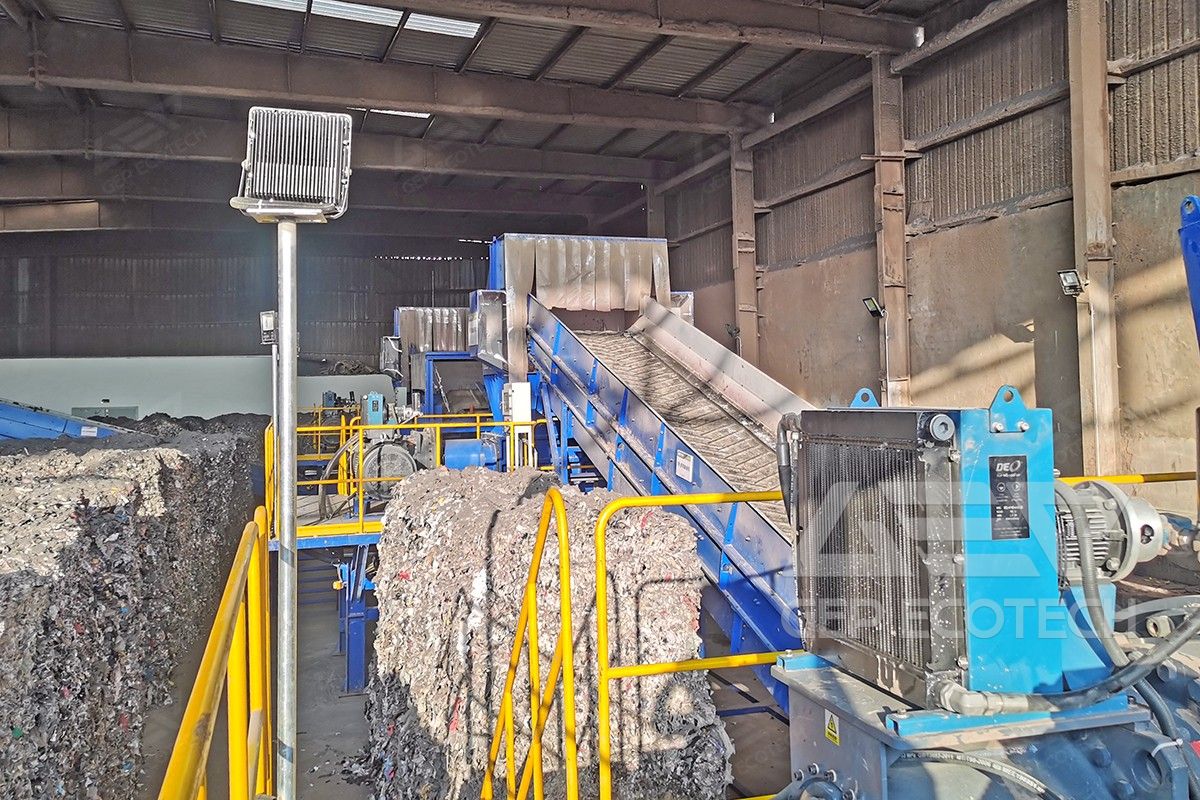
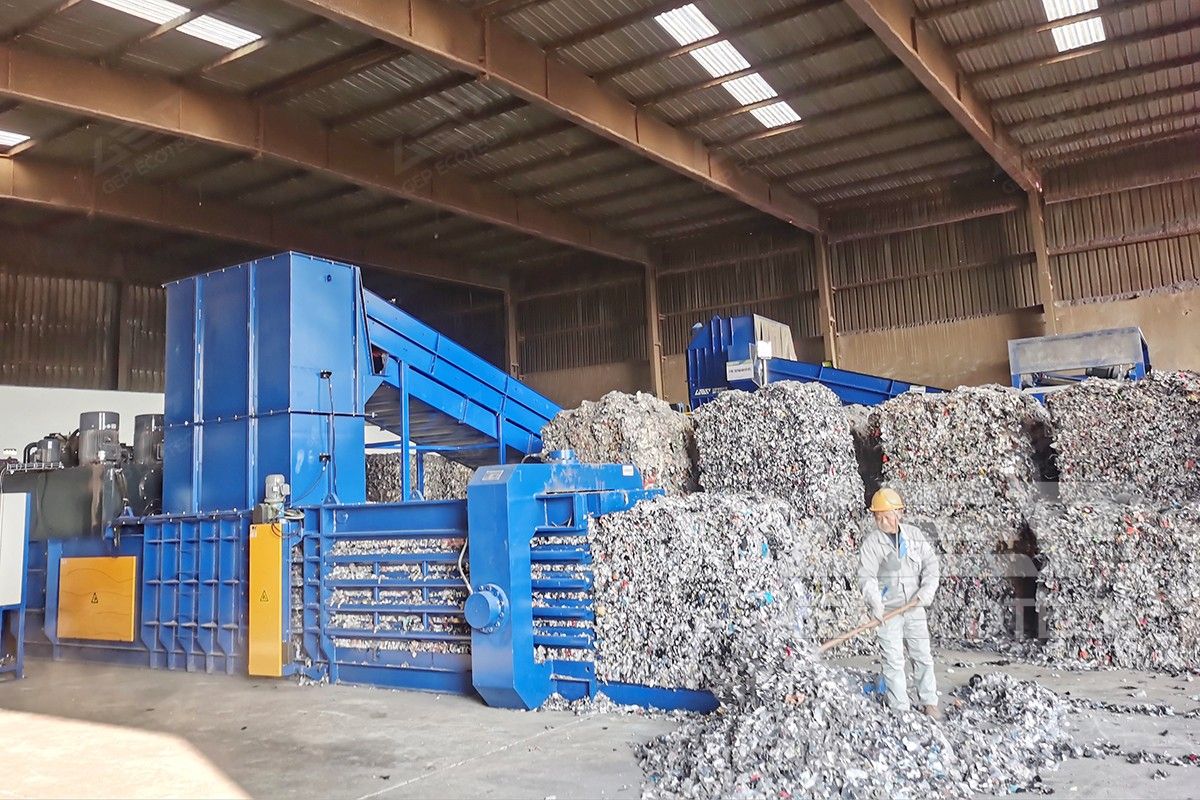
In response to the strong entanglement and complex composition of waste spun fibers, GEP ECOTECH creatively adopts the process of "chain plate feeding+three-stage biaxial shredding+belt conveyor+magnetic separation for iron removal+hydraulic packaging":
- Progressive shredding: The three-stage double-shaft shredder achieves a gradual decrease in discharge size through differentiated tool design (first stage thick tooth loosening, second stage thin tooth refinement, and final stage precision shredding), resulting in significantly reduced power consumption per ton compared to traditional processes (double-shaft shredder+single rotor fine shredder+RDF forming machine)
- Automatic iron removal: The intelligent magnetic separation system can capture 99% of metal impurities, avoiding damage to kiln equipment
- Compression molding: The hydraulic baler produces dense fuel packs, which are easy to store and transport
- Smart operation and maintenance: Real time monitoring of the entire process to achieve precise control; Fault diagnosis and automatic alarm enhance safety; Big data analysis optimizes production decisions
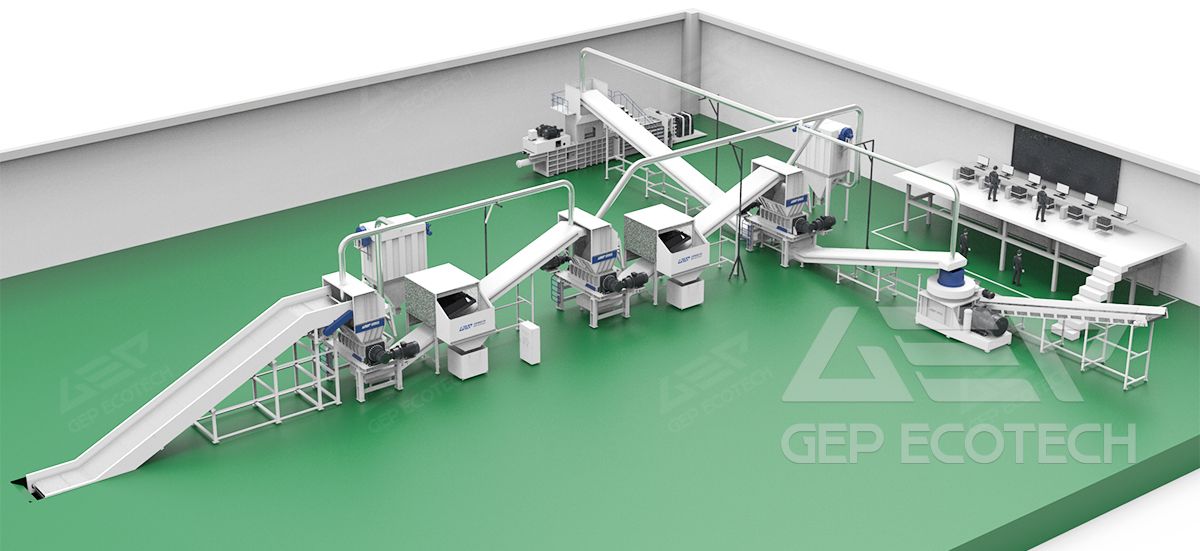
As a central enterprise fuel supplier, we value process stability and economy the most, "said the project leader." The GEP ECOTECH solution has enabled us to achieve an increase in fuel quality qualification rate, a decrease in equipment comprehensive failure rate, and a reduction in single ton processing costs. Especially the three-stage shredding system, even when processing complex waste textiles containing metal zippers and buttons, can maintain continuous and stable operation, and the fuel calorific value fully meets the requirements of the kiln. "
GEP ECOTECH has been deeply involved in the field of solid waste resource utilization for more than ten years, and has formed a full scenario alternative fuel solution covering RDF/SRF, biomass pellet fuel, and tire derived fuel (TDF).
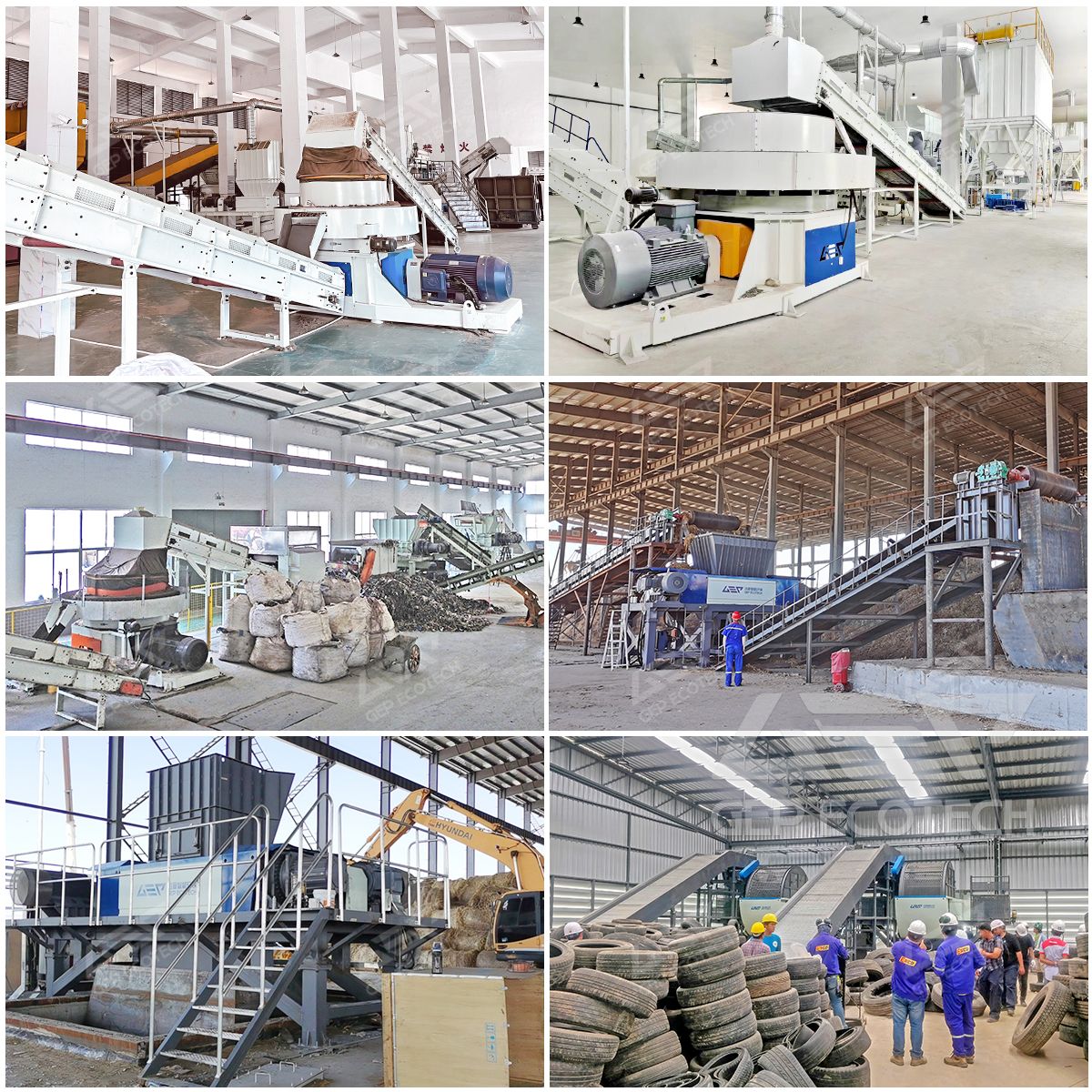
GEP ECOTECH provides an economically feasible, technically reliable, and emission controllable transformation path for high energy consuming industries through continuous technological iteration, helping the cement industry build green competitiveness in the carbon trading market and promote high-quality development of the circular economy industry.

